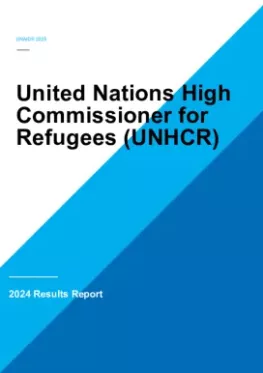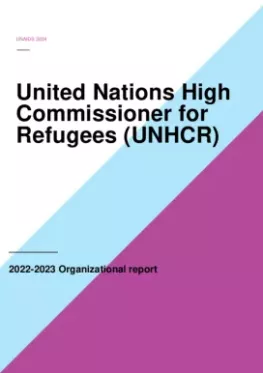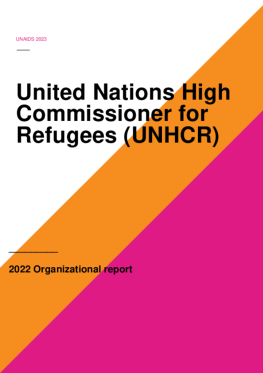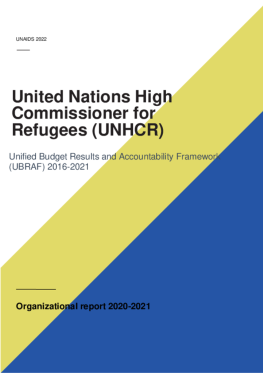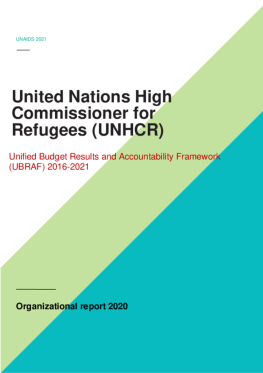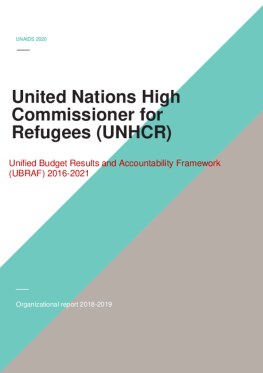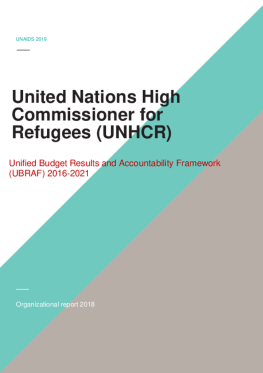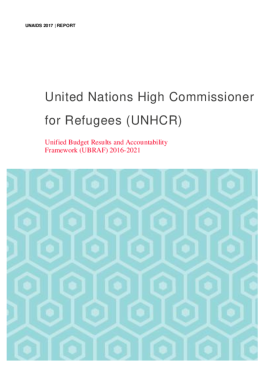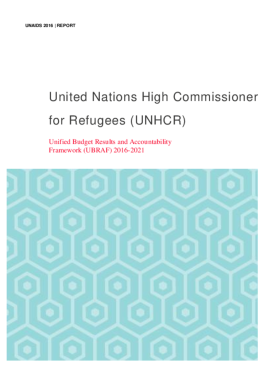UNHCR is mandated to protect, assist and find durable solutions for refugees, stateless and forcibly displaced persons. UNHCR provides life-saving assistance during emergencies and supports sustainable responses while pursuing solutions across 130 countries.
UNHCR emphasizes sustainable and resilient approaches from the onset of an emergency. By working in close partnerships with communities, partners and host governments, UNHCR ensures that refugees and forcibly displaced persons, including those living with and affected by HIV, are included in robust national health systems. Reliable data is crucial for advocating targeted investments, enhancing well-being, achieving protection outcomes and solutions for both refugees and host communities.
UNHCR is committed to supporting refugees, stateless people and host communities to access comprehensive HIV-related services through a holistic and multisectoral approach encompassing health, nutrition, sexual and reproductive health (SRH) and mental health care. Recognizing that people living with or affected by HIV are often underserved in humanitarian settings, UNHCR collaborates with host governments and humanitarian partners to integrate HIV services into emergency preparedness and response frameworks. In 2025, UNHCR will update its Global Public Health Strategy and contribute to the development of the new Global AIDS Strategy.
In 2024, UNHCR, together with the World Food Programme and the UNAIDS Secretariat, revitalized the Inter-Agency Task Team (IATT) on HIV in Emergencies, led through a jointly supported position based in Dakar, Senegal. Key outcomes from the IATT work included a revamped website; formation of three technical working groups to advance the update of the 2010 Inter Agency Standing Committee (IASC) Guideline for Addressing HIV in Humanitarian settings; and the development of a country priority matrix to support capacity strengthening and joint missions. In addition, the third working group focused on joint advocacy work to ensure HIV in humanitarian settings is featured through evidenced based approach. Work began on revising the 2010 IASC Guideline for Addressing HIV in Humanitarian settings, which included recruiting a consultant, conducting desk reviews, a survey and global consultations through key informant interviews and focus group discussions. These efforts resulted in a catalogue of initial recommendations for updating the guidelines, culminating in a Global Technical Consultative workshop.
For information on UNHCR's results, please see the 2024 downloadable report below.


